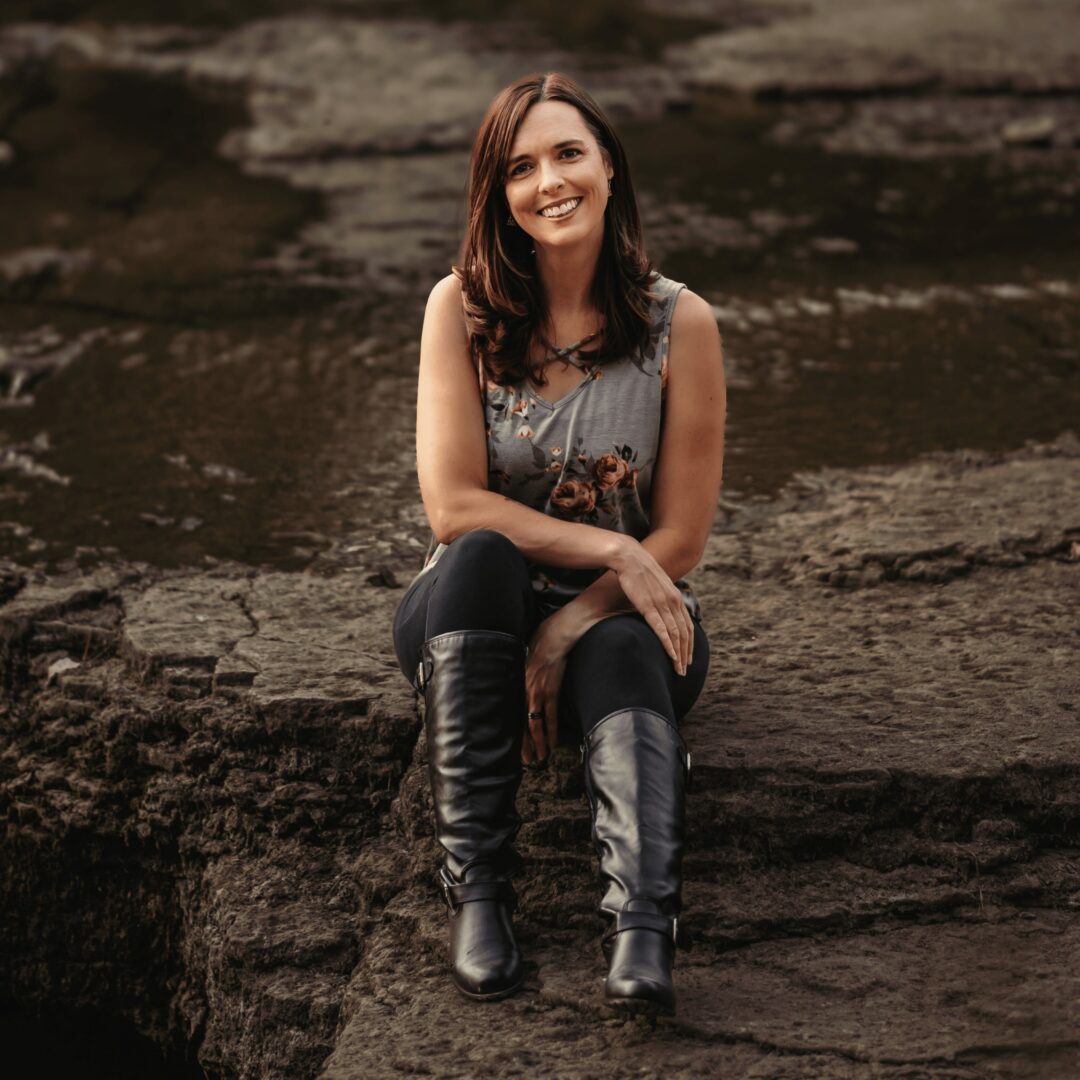We’re excited to introduce you to the always interesting and insightful Shideh Shafie. We hope you’ll enjoy our conversation with Shideh below.
Shideh , so great to be with you and I think a lot of folks are going to benefit from hearing your story and lessons and wisdom. Imposter Syndrome is something that we know how words to describe, but it’s something that has held people back forever and so we’re really interested to hear about your story and how you overcame imposter syndrome.
As a young child I quickly learned that it’s okay to be an outsider. My family immigrated to a small college town and my parents weren’t academics like many others’ parents in the town; instead, they hustled by starting their own business ultimately creating a wonderful life for us. During that time, I often felt like an outsider, dreaming of a life more like those kids and promising myself that I one day would subscribe to The New Yorker—just like the academics that I was surrounded by.
This experience shaped my understanding that feeling out of place can be a common part of life. When I decided to pursue a career in urology, a surgical field dominated mainly by men, I didn’t let thoughts of not belonging stop me. Instead, I thought, it’s not that people like me don’t belong here, it’s just that we haven’t been here yet. So, I went for it. Although I eventually realized that urology wasn’t the best fit for me because I prefer rapport-building with conscious patients and having deep conversations, this path led me to both emergency medicine and the coaching work I do now.
Regarding imposter syndrome, it’s normal to feel out of place when you’re doing something new. The term “syndrome” implies a flaw, but in reality, it’s a common experience. The key is to learn how to support ourselves when self-doubt and feelings of not belonging arise. This is a significant part of the work I do with my clients. Even now, when I’m expanding my business or taking on new challenges, I coach myself: “Of course you’re nervous and feel intimidated. Do it anyway. The reward is on the other side of the discomfort.” The discomfort is just part of the process of growth, and feeling out of place when you are entering new spaces is also part of the process, the key is learning how to support yourself through it.

Great, so let’s take a few minutes and cover your story. What should folks know about you and what you do?
I love what I do because it draws on so many parts of my life. Having spent nearly two decades working in the high-stakes environment of the ER, where I specialized in operations, I thrive on bringing order to chaos. The emergency room can be incredibly chaotic and stressful—if you want high stakes, try life or death—but through effective systems and operations, you can create order while remaining flexible for new challenges. This is a skill I love teaching my clients, enabling them to navigate their own high-pressure environments with confidence, regardless of the sector they work in law, finance, tech, government, academia, healthcare, entrepreneurship ….
What really sets my work apart is the depth of engagement I have with my clients and the structured thinking we do together. We delve into every aspect of their lives because many already know what they should be doing, but implementation is often where they struggle. Understanding their constraints and learning to use them as an advantage is key to this work. I encourage people to proactively address the parts of their lives that aren’t working as well as they wish. You don’t have to wait until things are unbearable to fix them. I love empowering my clients to fine-tune their lives, set big goals, and create a strategy to achieve them.
If you had to pick three qualities that are most important to develop, which three would you say matter most?
Learning to Hold Discomfort: Big goals and discomfort are intimately linked. Learning to increase your capacity for discomfort is essential. Embrace the fact that growth often comes from stepping outside your comfort zone. My advice for those early in their journey is to start small. Practice sitting with discomfort in manageable situations and gradually push your boundaries. Over time, you’ll build resilience and find it easier to tackle bigger challenges.
Learning to Recover and Rest: Many of us struggle to turn off our brains and the incessant drive to think about work, parenting, health, fitness, finances, and all the other goals we have in life, leading to exhaustion. Learning to truly switch off and rest is key to maintaining your energy and avoiding floundering in your goals. For those starting out, prioritize creating a routine that includes true downtime. Develop habits that signal your brain it’s time to stop thinking, whether it’s through meditation, exercise, or hobbies. Remember, recovery is not a luxury; it’s a necessity for sustained performance. My top choices in this area are tennis and meditation. Tennis keeps me in the moments and my brain literally cannot think about anything other than hitting that ball.
Making Everything Fun: Working in an ER is challenging; we meet people on some of the worst days of their lives. If we only connect to that piece of it, the job becomes unbearable. It’s crucial to inject fun into all the arduous goals and tasks of life. My advice is to find joy in the process, not just the outcome. Incorporate humor, truly celebrate and relish in small wins, and engage in activities that bring you happiness. This approach not only makes the journey more enjoyable but also more sustainable.
By focusing on these three areas, you’ll build a strong foundation for success and well-being. Embrace discomfort, prioritize recovery, and make fun a non-negotiable part of your journey.

What do you do when you feel overwhelmed? Any advice or strategies?
I’ve learned to recognize overwhelm as a signal that I need time to strategize. When I feel overwhelmed, I grab a pen and paper and write everything out. Overwhelm often comes from the brain trying to juggle too many tasks at once. By writing it all down, I can clarify what tasks just need to get done, the problems that need solutions and create a strategy for tackling each one. This approach helps me gain clarity and create some mental space, breaking down the chaos into manageable pieces.
This is also a key aspect of my coaching work. The first step is to figure out all the pieces of the overwhelm, you can certainly do it with a coach, but the other alternative is writing it all out.
Contact Info:
- Website: https://www.shidehshafie.com
- Instagram: https://www.instagram.com/shideh.shafie/
- Linkedin: https://www.linkedin.com/in/drshidehshafieperformancecoach/
Image Credits
Stephanie Alvarez Ewens
so if you or someone you know deserves recognition please let us know here.




